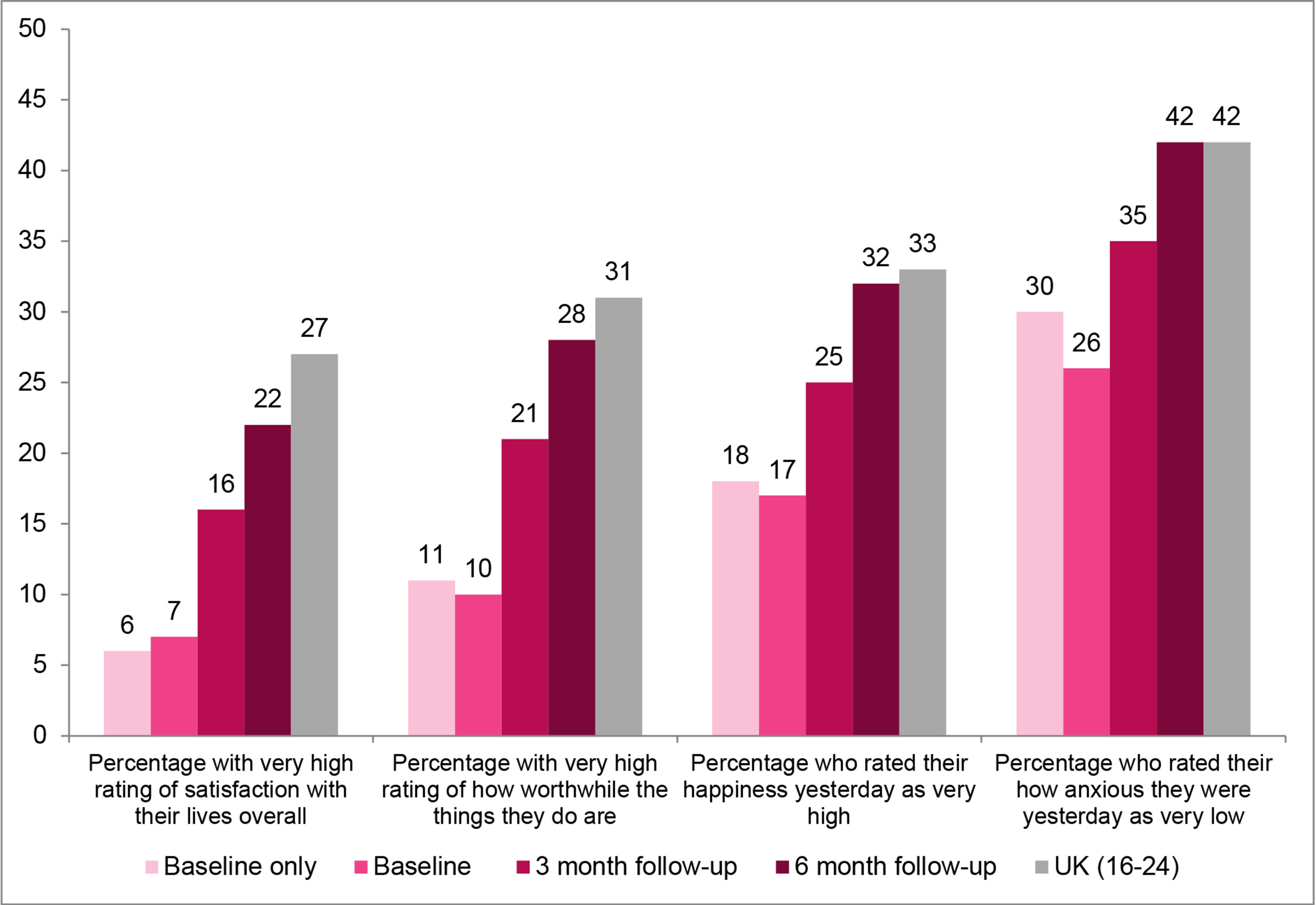There is a growing consensus that wellbeing and other so-called intrinsic factors are important in determining positive employment outcomes for young people. The Young Foundation (http://youngfoundation.org/publications/framework-of-outcomes-for-young-people) points to a growing evidence base linking social and emotional capabilities, such as determination, self-control, persistence and self-motivation, to positive outcomes for young people.
Talent Match aims to develop interventions which are holistic, person-centred and take a long term approach. If a young person has not yet gained employment but their social and emotional capabilities have developed they may be closer to achieving employment than previously, whilst also improving their life in other ways.
In the Talent Match evaluation the UK official measures (http://www.ons.gov.uk/ons/guide-method/user-guidance/well-being/index.html) of wellbeing are used to understand how intrinsic factors may be important to securing job outcomes. At each stage of data collection young people are asked four subjective questions regarding their well-being:
- Overall, how satisfied are you with your life nowadays?
- Overall, to what extent do you feel the things you do in your life are worthwhile?
- Overall, how happy did you feel yesterday?
- Overall, how anxious did you feel yesterday?
An initial inspection of the Talent Match CDF data suggests that individuals who remain on Talent Match for at least six months improve their wellbeing. This is shown in the following figure.
Figure 1: Changes in the Self-Reported Wellbeing of Programme Beneficiaries
Source: Talent Match Evaluation, 2015
Figure 2 below largely supports this picture: the largest proportion of Talent Match beneficiaries report improvements in wellbeing. However, this is not the same for all. For just under a third of beneficiaries, their experience on each of the wellbeing measures gets worse. Indeed, engagement in the programme may surface an individual’s previously hidden vulnerability.
Figure 2: Self-Reported Well-being – individual change
Source: Talent Match Evaluation, 2015
We should note some health warnings with these data. They are intended to reveal a possible issue rather than to explore the extent to which the Talent Match programme affects these wellbeing measures. This issue will come later.
The evaluation team are currently undertaking a thematic study on mental health and young people and are aiming to report in October. We would welcome comments on mental health and the programme and more broadly around interventions to support the wellbeing of young people being supported.
Elizabeth Sanderson and Peter Wells

